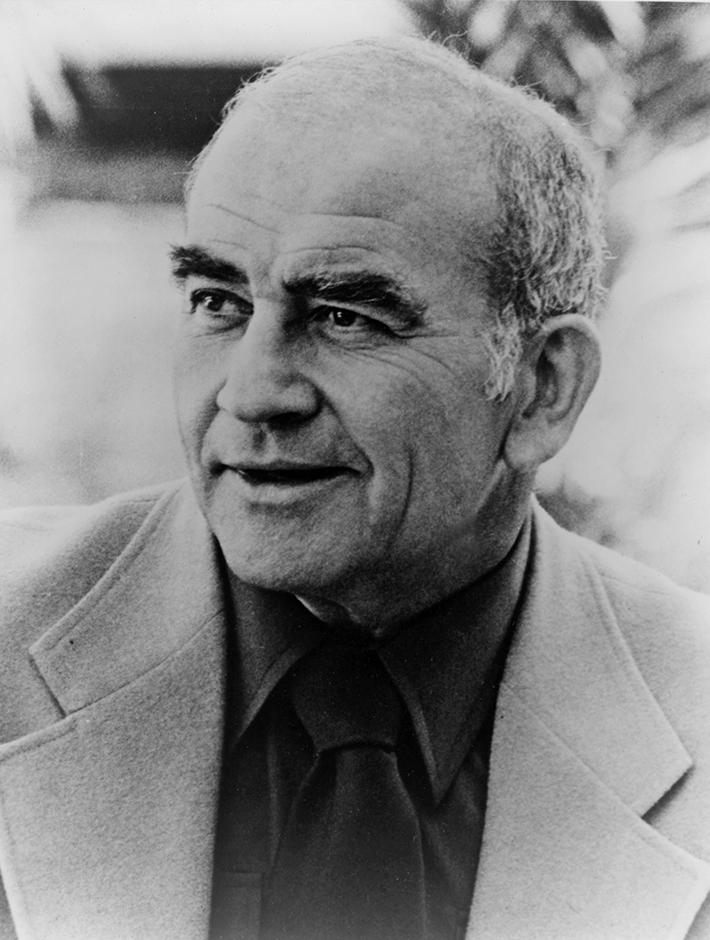
In 1981, Ed Asner was the Emmy award-winning star of Lou Grant to millions of loyal TV viewers, and he explained his philosophy as a candidate for Guild president: "I have no magic solution for the problems facing the Guild but, if elected, I will totally dedicate myself to enhancing our identity as proud workers and unionists. To strike out at the attitude that the performer is not a worker. To enlighten the performer who feels guilt at success and divorces himself from his peers. To work toward that unity of performer unions wherein all artists will feel strength in numbers and freedom from jurisdictional squabbles. With these accomplished, the two contracts we face by 1983 will be satisfying realities. We are family." Addressing the membership for the first time as President, he expressed strong support for merging the Guild with both AFTRA and the Screen Extras Guild, and urged a final push for passage of the Equal Rights Amendment (ERA).
During the Guild's 1980 Theatrical/Television strike, which lasted from July into October, Asner became a visual, vocal spokesman, walking the picket lines on blazing hot summer days, and even contributing a long written article to the Los Angeles Times. Yet the Guild nominating committee's selection of Asner as the 1981 presidential candidate was unusual for two reasons: this was the first time a candidate with no previous service as a board member or Guild officer had been chosen, and the second time in Guild history that the nominating committee had rejected an incumbent president who wished to run again (in this case, it was William Schallert, the first was Kathleen Nolan in 1977).
1982 produced a backlash of controversy for Asner when on February 15 he and several other prominent actors, including Howard Hesseman and Lee Grant, presented a check for $25,000 to be used for medical aid to the Communist guerillas in El Salvador, who were fighting that country's U.S-backed military dictatorship. The money, presented on the steps of the State Department in Washington, D.C., resulted from a fund-raising campaign. Negative response to the donation was loud and swift from individuals and media across the country. By May, his popular "Lou Grant" show was dropped by CBS. Later that year, he traveled to Sacramento and successfully lobbied for passage of Assembly Bill 2007, which would end auto insurance discrimination based on occupation. Asner hoped for merger with the Screen Extras Guild and in 1982 (and again in 1984) referendums were sent for the membership to vote on this issue. Although over half voted in favor both times, the measures failed because they fell short of the 60 % "yes" vote required for passage. In October 1983, just before his re-election to a second term as President, Asner testified on that old spectre - Runaway Production - at a hearing in Los Angeles entitled "The Flight of the Motion Picture Industry from California" held by the Assembly Committee on Economic Development and New Technologies. In August 1984, the Guild devised a low-budget motion picture agreement giving advantages to productions that hire more women, minorities, seniors, and disabled performers.
In 2000, 15 years after completing his terms as president, Ed was presented with the Guild’s Ralph Morgan Award on June 4 at the Hollywood Mid-Year Membership meeting. By then, the Guild was just a month into the Commercials Strike and, after the thunderous applause of over 1,400 members in attendance ceased, Ed told them: “I believe in unionism…I believe when we find ourselves blessed with good fortune, we must answer to a higher standard of caring. We pass this way once, and how we behave along the way is who we turn out to have been all along.” Two years later, on March 10 2002, Ed Asner became the recipient of the Guild’s annual Life Achievement Award presented at the 8th Annual Screen Actors Guild Awards telecast.
